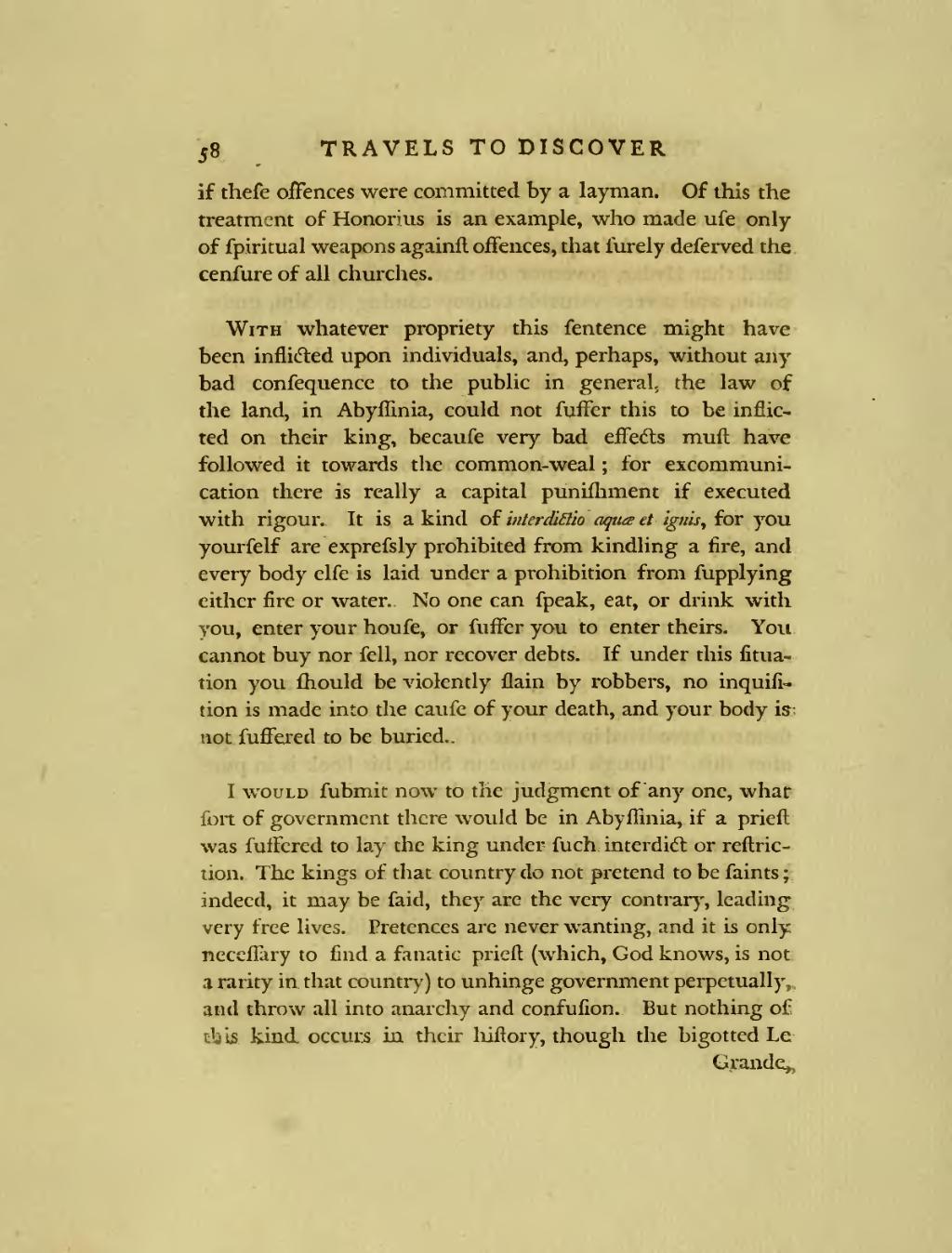if these offences were committed by a layman. Of this the treatment of Honorius is an example, who made use only of spiritual weapons against offences, that surely deserved the censure of all churches.
With whatever propriety this sentence might have been inflicted upon individuals, and, perhaps, without any bad consequence to the public in general, the law of the land, in Abyssinia, could not suffer this to be inflicted on their king, because very bad effects must have followed it towards the common-weal; for excommunication there is really a capital punishment if executed with rigour. It is a kind of interdictio aquæ et ignis, for you yourself are expressly prohibited from kindling a fire, and every body else is laid under a prohibition from supplying either fire or water. No one can speak, eat, or drink with you, enter your house, or suffer you to enter theirs. You cannot buy nor sell, nor recover debts. If under this situation you should be violently slain by robbers, no inquisition is made into the cause of your death, and your body is not suffered to be buried.
I would submit now to the judgment of any one, what sort of government there would be in Abyssinia, if a priest was suffered to lay the king under such interdict or restriction. The kings of that country do not pretend to be saints; indeed, it may be said, they are the very contrary, leading very free lives. Pretences are never wanting, and it is only necessary to find a fanatic priest (which, God knows, is not a rarity in that country) to unhinge government perpetually, and throw all into anarchy and confusion. But nothing of this kind occurs in their history, though the bigotted Le
